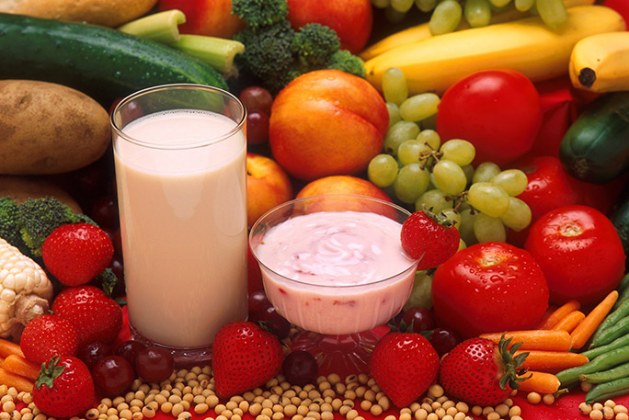
People often remember the phrase “eat your vegetables!” from their childhood. No surprise, there was a reason. Those plants and green veggies often contain many of the vitamins our bodies need for normal function, good health, and production of natural defenses that fend off germs and sickness.
That said, vitamins aren’t just found in a bowl of salad. In fact, some of the most important vitamins a person needs on a regular basis can come from a variety of sources.
Here are the major vitamins everyone should have in their diet on a regular basis and typical sources where to find them in natural foods:
- Vitamin A – sourced from unskinned potatoes, spinach, carrots and healthy cereals, Vitamin A helps with maintaining good vision, keeping up a healthy immune system and enjoying a healthy reproductive system.
- Vitamin B Complex (Choline) – This vitamin can be found in dairy products like milk and eggs, as well as in liver meat products and peanuts. Regardless of the source, Vitamin B complex provides a key conduit for cellular nerve transmission as well as cellular production.
- Vitamine B1 (Thiamin) – Primarily found in whole grains, cereals and breads, Vitamin B1 can be considered a fiber-type vitamin. That said, it is essential because it helps the body burn off carbohydrates as an energy source. It also helps with protein digestion.
- Vitamin B2 (Riboflavin) – Drink your milk, kids! The animal product we all know from childhood is a major source of Vitamin B2, as are bread and health cereals. This ingredient helps with digestion and metabolism as well as red cell blood production.
- Vitamin B3 (Niacin) – Definitely considered a meat vitamin, Vitamin B3 can be found in all types of fish, poultry, red meat, pork, as well as in whole grain bread products and healthy cereals. Similar to others, Vitamin B3 helps the digestive system, burning of food for energy, and the creation of good cholesterol.
- Vitamin B5 (Pantothenic Acid) – A meat and potatoes diet won’t be short of this vitamin. Commonly found in cereals, potatoes, beef and tomatoes, Vitamin B5 helps burning down fatty acids.
- Vitamin B6 – This vitamin can be found in healthy cereals, organic meat only, and soy products. It helps improve the function of the nervous system network, and it allows the digestion system to break down sugars and proteins faster.
- Vitamin B7 (Biotin) – There’s a reason grandmothers always tried to feed their grandkids liver. It’s chock full of Vitamin B7. The same vitamin can be found in some fruits and other meats. This element helps with digesting fats, amino acids and glycogen.
- Vitamin B12 (Cobalamin) – Drawn from both meats as well as fortified cereals, Cobalamin is a significant boost for the body when it comes to the production of red blood cells.
- Vitamin C – Everybody remembers being told to drink their orange juice to get enough Vitamin C. That said, the vitamin is also found in strawberries, green and red peppers and broccoli. It provides a significant antioxidant that helps with fending off cellular damage. Vitamin C is also well known for keeping an immune system working and it produces collagen.
- Vitamin D (Calciferol) – Fish and fish oil products are a major supply of Vitamin D, but it can be found in milk products and healthy cereals as well. It is also generated by simply being exposed to the sunlight daily for a less than an hour. The vitamin shouldn’t be ignored; it provides a critical element in calcium production for a healthy bone system.
- Vitamine E (Alpha-Tocopherol) – Often used in skin care products, Vitamin E can be ingested by eating healthy cereals, almonds, sunflower seeds, vegetable oils, and peanut butter. Its benefit comes in the form of being an antioxidant which prevents cellular damage from building up.
- Vitamin K – This one is definitely a green vegetable vitamin. Found in spinach, broccoli, collards, cabbage and brussel sprouts, Vitamin K is responsible for helping the blood system clot properly when there is a wound, and it contributes to bone health.
As can be seen above, every vitamin plays a key role in body health, production of good internal systems, preventing cellular damage or boosting cellular production. Specifically, many of the vitamins are key elements in blood production and skeletal bone health as well.
Therefore, there is a fundamental, scientific truth to “eating your vegetables” and taking your vitamins. They really are good for you.
What other vitamin-filled foods would you add to the list?




Leave a comment
You must login or register to add a new comment.